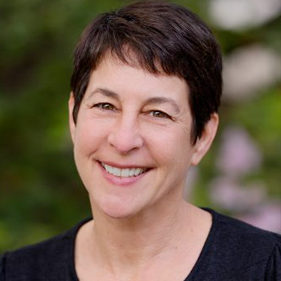
Navigating Romantic Relationships
Romantic relationships are complex and confusing for everybody! But, for some neurodivergent people, romantic relationships are even more challenging. Many neurodivergent young adults crave intimacy and love, but they may be unsure how to achieve it in a romantic relationship. They may not understand the everyday subtle social cues from their partner. This can cause conflict and hurt feelings.
We know that neurodivergent young adults try very hard to be good partners, but they can feel overwhelmed by what they view as confusing signals being given to them by their partners. One neurodivergent young man said it was like watching a movie but the screen goes dark every few minutes so a lot of the story is missed. The gist of the movie is there but it leaves the viewer feeling puzzled and unsure.
There are a few common situations that may be challenging for neurodivergent young adults:
- Social settings: Many neurodivergent young adults need alone time to recharge as well as time alone to engage in their special interests. A romantic partner’s expectation for spending time together may feel overwhelming.
- Group conversations: Many neurodivergent young adults feel more comfortable in 1-to-1 interaction and find group activities quite draining. This can sometimes be a cause of conflict as a romantic partner may want to spend time with groups of friends.
- Sensory sensitivities: Becoming overstimulated is a common occurrance for neurodivergent young adults. Sounds, textures, smells, and vibrations can overwhelm their nervous system. A romantic partner who is neurotypical may not be aware of how challenging overstimulation can be for their partner.
So what to do? The following are suggestions to help improve romantic relationships when one or both partners identify as neurodivergent:
Communicate, communicate, communicate: One way to overcome these dating obstacles is for neurodivergent young adults to learn to be open and honest about their strengths and challenges. A willing romantic partner will respond with acceptance and try to learn to navigate the ups and downs together.
Ask for what is needed: Many people, neurodivergent and neurotypical, struggle to ask for assistance. But we all need help sometimes! Neurodivergent young people can try to learn how to ask for reassurance that they are loveable, even when they are not at their best. For example, “I am feeling really worried that the thing I said to you wasn’t nice and I am scared that you are mad at me. Can you reassure me that we are ok?”
It’s OK to practice self-care when needed: Often neurodivergent young adults need to take time for self-care but this can sometimes cause tension. For example, a romantic partner may want to make dinner together or play a board game, but a neurodivergent young adult may feel a need to be alone for a bit. This can cause feelings of guilt for disappointing their partner. But it is ok to practice self-care when needed. Explaining to a partner that you understand that they want to do an activity together but time alone is needed can be hard to do at first. An understanding romantic partner will make space for their partner’s needs
Seek Support Outside Your Relationship: No romantic partners can be there for their partners 24/7. Each partner having their own separate support network is vital. Working with a therapist or Life Coach can be a safe space to share worry and concerns, as well as an opportunity to learn skills to create and maintain healthy romantic relationships.
The road to true love isn’t easy for anyone but by learning new skills for communication, reassurance, self-care and support, the path may get a bit easier. Wishing our Advance LA Community a Happy Valentine’s Day!

Jeri Rochman, JD, MS
Jeri Rochman, JD, MS, is the Advance LA Director of Community Outreach, a Life Skills Coach, National Board Certified Counselor and Certified Parent Educator. Interested in learning more about Advance LA’s services?
